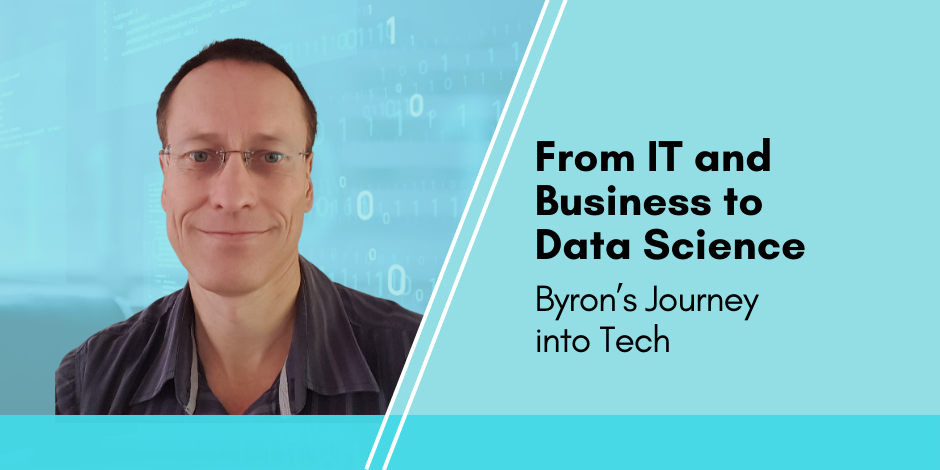From IT & Business to Data Scientist: Byron’s Empowering Journey

Stay Informed With Our Weekly Newsletter
Receive crucial updates on the ever-evolving landscape of technology and innovation.
The Institute of Data caught up with a Data Scientist called Byron 6 months after completing the Data Science & Artificial Intelligence Full-Time Program.
Here’s what he had to say:
1. Hi Byron, can you tell us about your career before you decided to study Data Science & AI?
I have had a mostly varied career, with the last 10 years being part-business and part-information technology (IT) related.
My educational background was in computer science with an operations research major.
I had been working in my previous role for 10 years.
2. Why did you choose to change your career to data science?
There were two main reasons.
Firstly, it seemed more interesting than purely IT programming and project management roles I had had.
Secondly, I could see the supply-demand was a much better equation in terms of many companies wanting data science-related skills and not nearly as many people having qualifications to satisfy the demand.
3. How did you find the full-time training program?
Generally, it was very good.
The Institute of Data’s Program covered a lot of ground!
4. How did you get into the industry after completing your training?
I got an internship at a company called GoCatch, an Australian version of Uber.
I worked there for 3 weeks as an intern, and they were happy with what I did.
At first, they offered me a contract position.
Now I’m in a full-time position as a Data Scientist.
5. Tell us about what you’re doing in your current role.
I’ve done some passenger lifetime value analysis and passenger churn analysis.
I look at the normal timeframe for people to drop in and out of the system and also the spending patterns of users to determine whether they are profitable jobs or not.
I also do a lot of mini queries – some planned, some ad hoc – responding to management’s needs.
I’m constantly pulling out metrics and reporting on them.
I’ve implemented automation technology using Python code for many of the reports.
The reports are the main go-to tool for management to analyse where the business is going.
6. How has your career progressed since entering the industry?
I guess I knew a little bit of everything to start, emphasis on little.
Now, in terms of data analysis, I know a lot and can do it quickly.
I understand complex tables with many relationships.
Over time, I’ve been understanding how data can influence business decisions.
I now understand how good data and bad data are very important to base decisions on.
Management is now very focused on using data to make decisions, not just going with gut feeling.
7. Now that you have worked for 6-months in the industry, what’s your future career plan?
My future career plan is to progress the way I’ve already been progressing.
I want to focus on machine learning (ML) and artificial intelligence (AI) as I progress.
We certainly have some interesting projects lined up next year where we are going to do some dynamic pricing and meet the supply and demand curve based on our analysis of the data.
8. How do you compare your career situation now to 12-months previously?
Twelve months ago, I was a bit depressed about everything.
I would apply for jobs and wouldn’t get a response for anything, let alone an interview.
[su_quote]Now, I can see the demand is high, and there are always people looking at my LinkedIn profile and contacting me, so I’m not actively seeking them out.[/su_quote]I’m often being approached by recruiters.
If you are interested in joining the Data Science & AI Industry, consider downloading the Institute of Data’s Data Science & AI Course Outline.
Alternatively, discuss our programs with our local team by booking a free career consultation.

